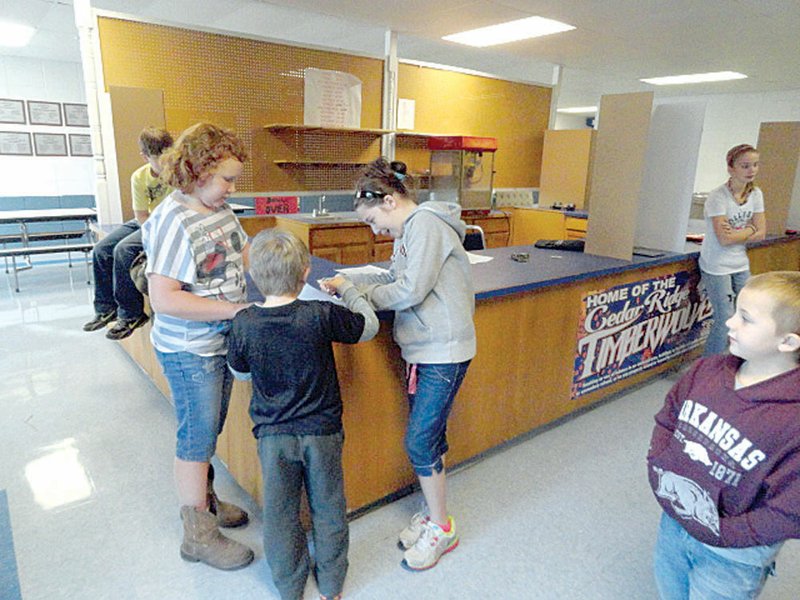CHARLOTTE — Students at Cord-Charlotte Elementary School sported “I voted” stickers after they voted in their own presidential election Tuesday morning.
Gregg Cooper, the school’s principal, said that this is the third time the school has participated in a mock presidential election, and in the last two, the students accurately predicted the outcome of the actual election.
The results of the 2012 mock election at Cord-Charlotte was Mitt Romney, 70; Barack Obama, 58.
“We made campaign posters for the candidates and had poll workers and used iPads as the voting machines,” Cooper said.
When children learn about civics, they’re more likely to participate in their communities as they grow up, said Ed Rickers, CEO of Studies Weekly, an educational publication that is conducting a national student mock election.
“I think a lot of the kids who don’t have civic education get caught up in a vacuum, and maybe it doesn’t occur to them to vote as adults,” Rickers said. “In Benjamin Bloom’s Bloom Taxonomy of higher levels of thinking, he said children form up to 80 percent of their adult intellect by the time they’re 8 years old, and their character is pretty much in place by the time they’re 10.”
Rickers said more than 835,000 students have placed educated votes nationwide in mock elections through Studies Weekly. That number may increase once some of the schools on the Eastern seaboard closed by Hurricane Sandy reopen and participate in mock elections.
Each teacher at Cord-Charlotte taught the students about the election process, the role of the president and personal information about each candidate.
Paula Jones taught three lessons to fifth- and sixth-graders. She said the first lesson was on the electoral college, the election process and the requirements to be a registered voter, and the qualifications to be a presidential candidate. The second lesson addressed the three branches of government and the reason people should vote. The third lesson was a more personal study of Obama and Romney.
“We talked about the other parties, too, but they just did their project on the (Democratic and Republican) parties,” Jones said.
She also said it surprised her at how much her students delved into the current presidential election on their own when several of them came back to class wanting to talk about one of the televised candidate debates.
“While we were doing the unit, they watched the debate on their own,” she said. “They were surprised at how mean (the candidates) were to each other. They said they argued all the time.”
Jones said she had to explain to her students that when someone is running for public office, they sometimes say things about the opponents in order to get votes for themselves.
“I told them that it is opposite of everything they’ve been told, that you don’t talk bad about other people,” she said with a laugh.
In addition to casting votes on the mock-election day, the schools also had a weeklong absentee voting period.
The program is organized by American Legacy Publishing, the publishers of Studies Weekly Publications, which specializes in social studies and science curriculum for kindergarten through sixth grade nationwide.
To see real-time results of the Studies Weekly national mock election, visit www.studiesweekly.com/vote.
Staff writer Jeanni Brosius can be reached at (501) 244-4307 or jbrosius@arkansasonline.com
